The Junta may be having its own preferred plan, but whether it will be practicable to implement such a plan when the whole country is in revolt against the regime, writes Baladas Ghoshal
In its one year of power, the Myanmar Junta remains completely alienated from the people, yet not vulnerable to any popular pressure for leaving the political scene. Symbolic of the alienation of the people from the Junta was on December 10, when the whole country was shut down in a “silent strike” against the military, streets in cities and towns nationwide were deserted throughout the day, shops were closed and people stayed at home in a mighty show of defiance.
While resistance to the Junta has been quite widespread and broad-based due to support from major sections of people, including many ethnic groups like Karens and Kachins who have been fighting the State for decades now closing ranks with the resistance, the Junta’s power base is slowly eroding due to widespread discontentment with an oppressive institution determined to remain in power with unprecedented violence, desertion of government and public officials and reported casualties on its side.
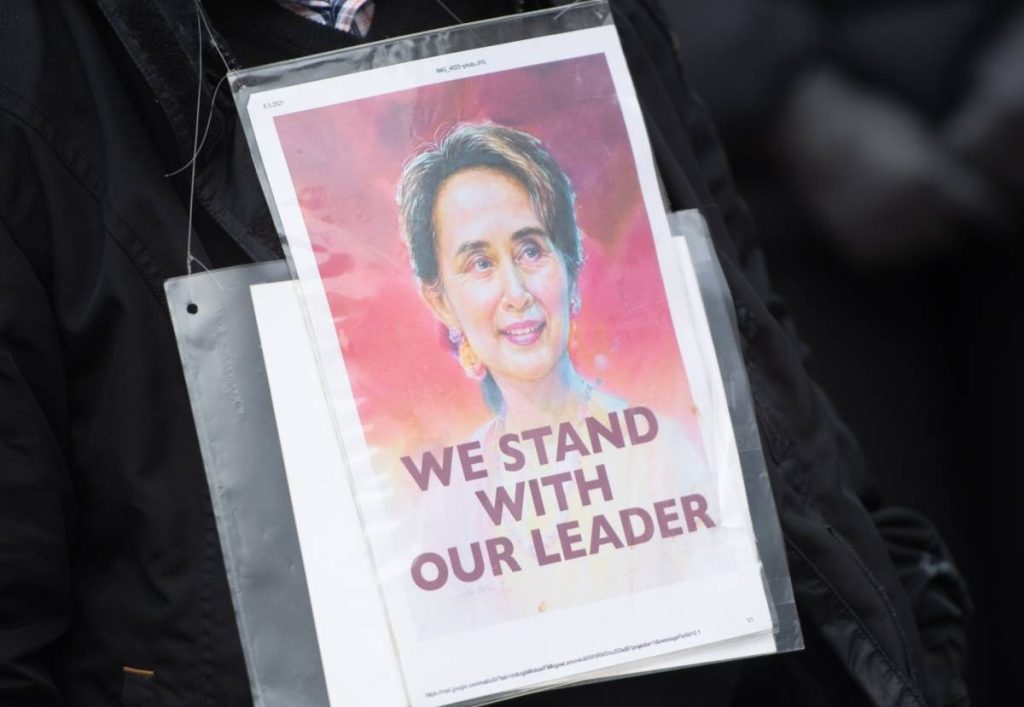
Junta’s survival instinct has led the regime not only to indulge in extreme form of violence, but also trying to keep the morale of the armed forces high by adding to its strength in numbers and inflating its image as a modern institution with the purchase of state of the art weapons systems, even while those have no relevance or use in fighting the resistance. The procurement of two diesel-electric submarines, one from India and the other from China together with other advanced weapons from China, Pakistan and Israel, have, in the words of Bertil Lintner, a leading expert on Myanmar, “as much to do with diplomatic balancing as keeping the military’s rank-and-file loyal, proud and satisfied.”
To quote him further: “For their part, Myanmar’s generals aim to ensure the officer corps and rank-and-file remain loyal to the top brass, led by coup-maker Senior General Min Aung Hlaing. It is of imperative importance to the troops, regardless of which military service they belong, that they are on the surface part of a modern, well-equipped and world-class military – even if they’re not.” With all the above strategies, the regime has not been able to consolidate its position in all parts of the country. The Junta is in power but lacks legitimacy.
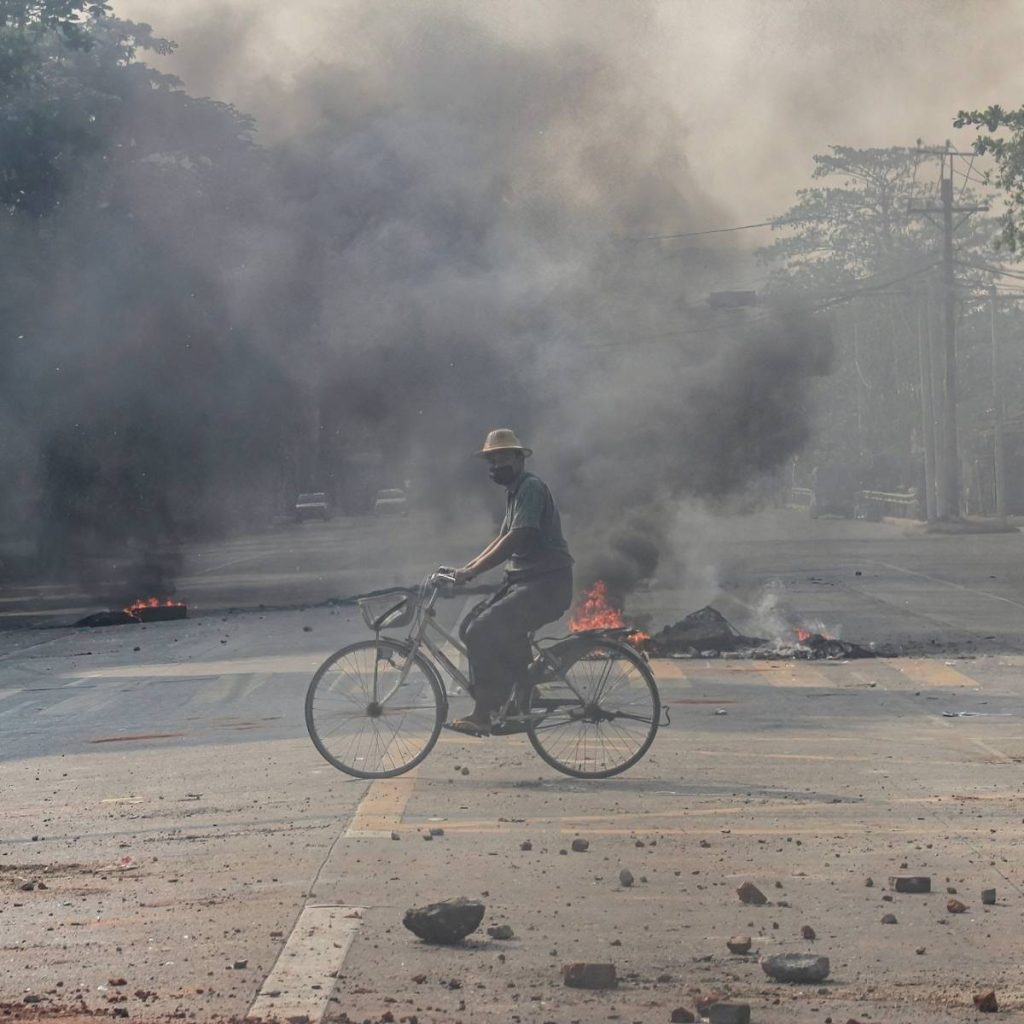
Lacking legitimacy, the military has resorted to increasing levels of violence to maintain its grip on power. Large number of Myanmar refugees, that includes government officials, policemen and ordinary citizens who are protesting against the coup, are coming over to Mizoram in India and in the bordering areas of Thailand, to take shelter. Peoples’ non-cooperation with the brutal regime has impacted essential services, whose delivery has come to a standstill, affecting daily life in the country. Since the coup, thousands of civil servants, railway workers, doctors, nurses, teachers and others have joined or supported the protests, with many arrested.
Banks, private healthcare and other services have shuttered offices or slowed operations to comply with restrictions on crowds. The pro-democracy and civil disobedience movements are gradually widening their base of support by bringing on board the various armed ethnic groups, who had been fighting against the Tatmadaw for many years for greater autonomy for themselves. Inflexible repression by the Tatmadaw, has pushed segments of the urban-based protest movement into using low-level guerrilla warfare tactics, while escalating hostilities with ethnic armed forces in the north and east threaten a wider war on multiple fronts in the country’s borderlands.
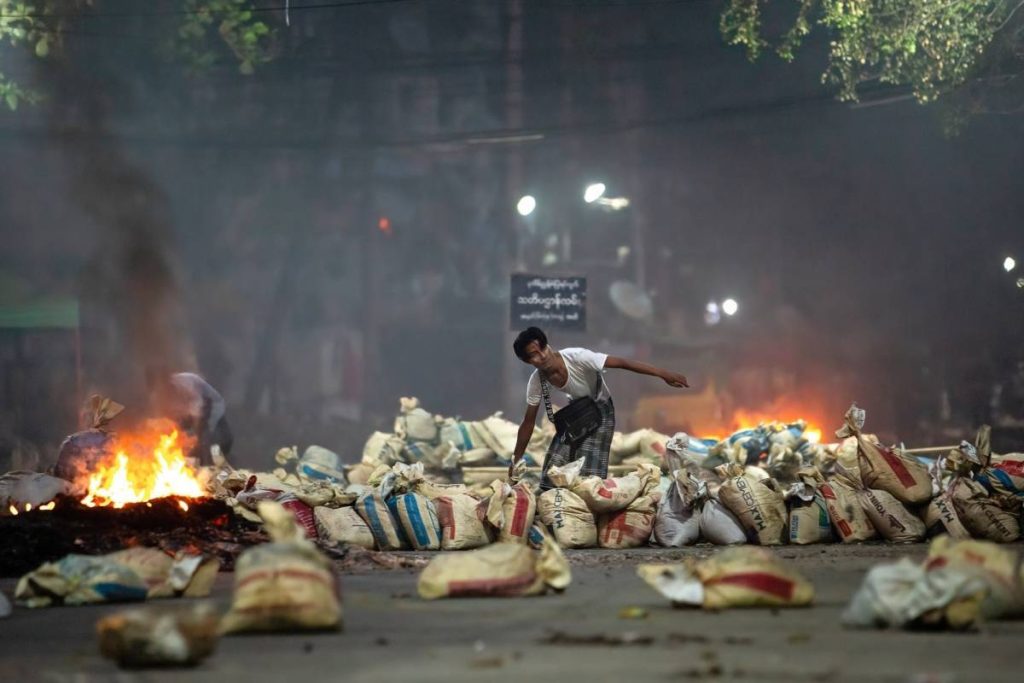
The economic crisis triggered by COVID-19 and the coup could plunge “up to 12 million people into poverty” in Myanmar, driving the poverty rate to 48.2% by early 2022 and pushing the country back to where it was in 2005, the United Nations Development Programme (UNDP) said in a report released on 30 April last year. The projection is based on a scenario in which the disruption of banking, logistics and trade cuts wages and business income in half. The report said women and children are set to bear the heaviest burden of the crises. “Half of all children in Myanmar could be living in poverty within a year,” said Wignaraja, U.N. Assistant Secretary-General and UNDP Regional Director for Asia and the Pacific, adding already vulnerable internally displaced people also faced more pressure.
In 2017, a survey conducted by UNDP, the World Bank and the Myanmar government showed that 24.8% of the population was living under the poverty line. Millions of people have lost their jobs or sources of livelihood over the last year. The prices of many essential food items have shot up with the national currency, the kyat plummeting in value, pushing up the cost of imports including cooking oil, agricultural inputs such as fertiliser, and refined fuels, and with it rising domestic transport costs. A large proportion of the population, including in the cities, is slipping into poverty and food insecurity, as predicted wiping out a decade of progress and inflicting a terrible cost on the most vulnerable.
With doctors, medical staff and teachers at the forefront of the civil disobedience movement and the majority continuing to refuse to work under the junta, public services have collapsed. “Those on strike have been targeted for beatings and arrest, while those who have continued working face violent retaliation from their communities and local defence forces. The upshot is a health system in disarray and schools likewise disrupted, with few teachers in classrooms and few students in attendance,” says the International Crisis Group in their latest report.
There are widespread blackouts across the country as the regime has been forced to cancel power generation projects pegged to the U.S. dollar that it can no longer afford. All in all, human sufferings have been immense. According to a January 4 joint report by the United Nations Office for the Coordination of Humanitarian Affairs and the United Nations High Commissioner for Refugees, more than 135,000 civilians have been displaced because of the fighting and, given more recent military operations in Karen and Kayah states, the current figure may be twice as high.
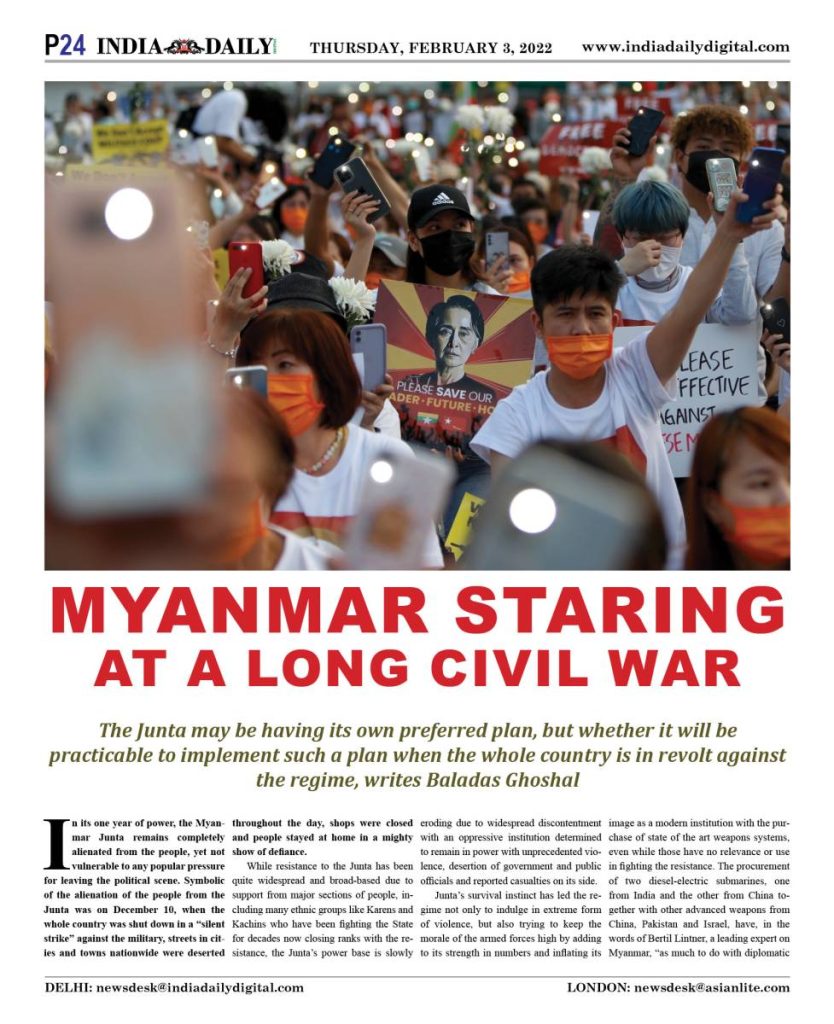
In which direction Myanmar is moving?
The Junta has its own road map, a five point formula in which it wants to hold an election sometime in the middle of 2023 after which it wants to hand over power to an elected President, obviously someone from the Junta itself or what is known as the State Administrative Council (SAC). With that plan in mind, it has been doing everything that is needed to ensure its success in a constitutional framework that would guarantee the dissolution of Aung San Suu Kyi’s National League for Democracy, the most popular party in Myanmar. Suu Kyi is already under detention with all kinds of contrived charges and will continue to remain so in the foreseeable future unless some miracle takes place to bring down the army regime. Elections machinery is also under overhaul to make it more amenable to the junta and ensure the success of the Union Solidarity and Development Party, consisting of retired army officials and their henchmen.
The Junta may be having its own preferred plan, but whether it will be practicable to implement such a plan when the whole country is in revolt against the regime. More importantly, in the backdrop of a popularly mandated elections being rejected by the Junta, a new contrived election that will bring retired army generals in civilian garb cannot resolve the political crisis that Myanmar is mired in. Western support and the ethnic rebel armies like the KIA and KNA making common cause with the democracy supporters to build a Federal Myanmar might have emboldened the protesters to challenge the junta and may have raised the hope of gaining recognition from the international community for the NUG. But it is highly unlikely that the Tatmadaw will cave in, as the means of violence is still overwhelmingly in their favour to be pressured to surrender.
Even if the battle-hardened rebel Kachin and Karen armies provide guerrilla training to the opposition groups, for one, it will require a long time to garner enough strength to match Tatmadaw and win victory over it; for another, will the Myanmar society at large be able to maintain unity in the event of a civil war consuming the country. The international community also may not have the stomach for another Syria-like situation distracting their attention and energy from more serious global issues. More importantly, ASEAN, likely to be most affected by a civil war in Myanmar, will not allow such a situation to develop. Even if the ASEAN Five point consensus lacks much teeth and appears to be too weak, that is the only path through which peace and normalcy can be restored in Myanmar. But the Junta has not shown any inclination so far that it would be amenable to the ASEAN plan. Under such circumstances, a protracted civil war is what the country is destined for in the foreseeable future.
(Baladas Ghoshal is a former Professor and Chair in Southeast Asian Studies, Jawaharlal Nehru University, New Delhi. Views expressed are personal and exclusive to India Narrative) (The content is being carried under an arrangement with indianarrative.com)
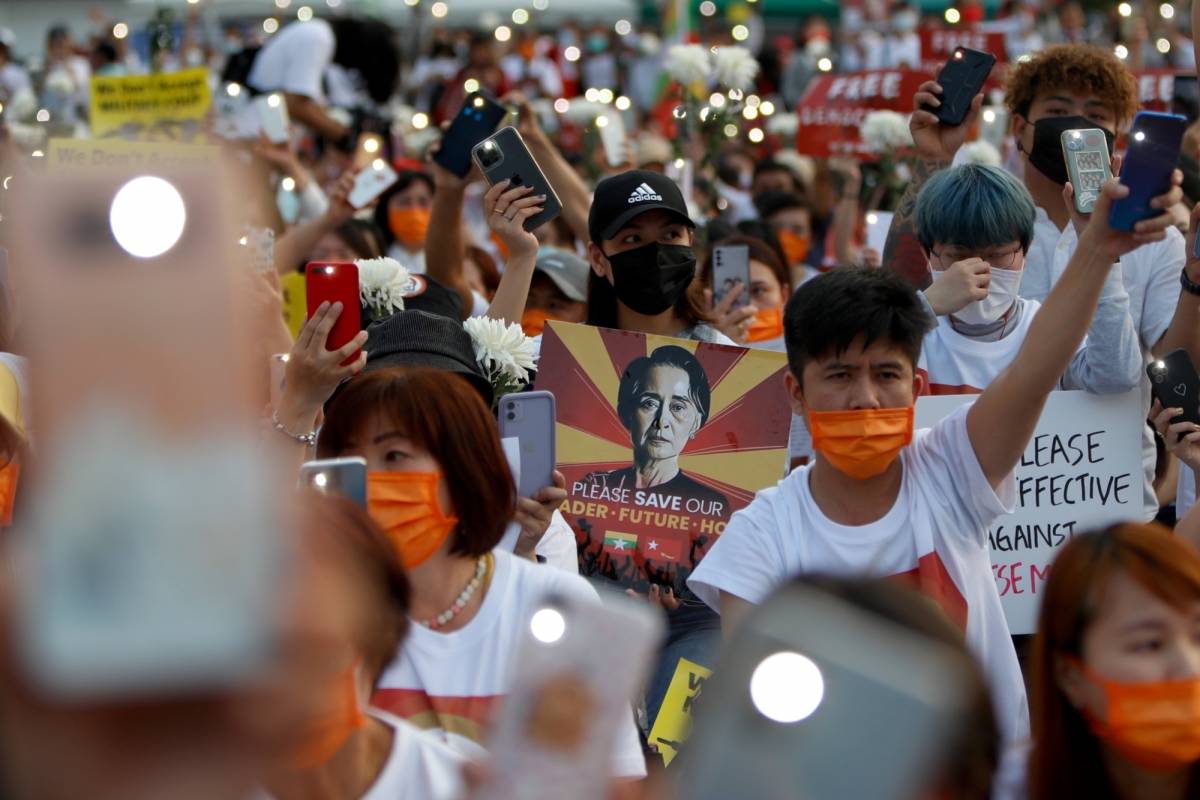
Leave a Reply